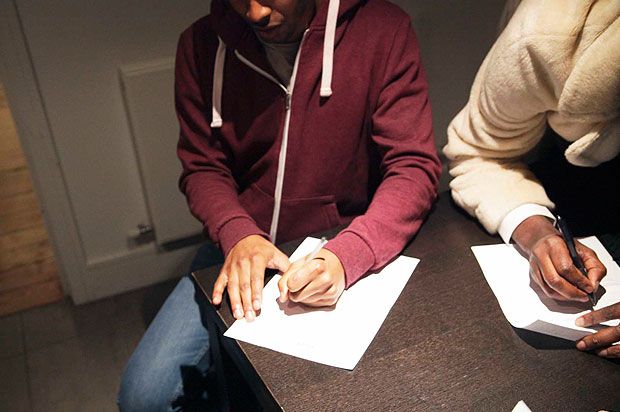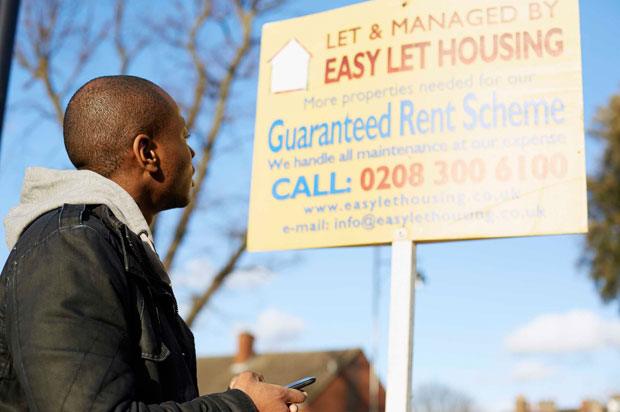Tenancy agreements
Before you rent somewhere new, you're likely to sign a tenancy agreement. These outline the cost of your rent, how long you're renting for, and your rights. But what should you know before you sign?

Make sure you know what you're signing.
What is a tenancy agreement?
A tenancy agreement, or rental agreement, is a contract between you and your landlord, allowing you to legally live in a property you’re paying rent for.
Are there different types of tenancy agreement?
There are different types of agreement depending on your circumstance, but the main types are:
Assured shorthold tenancies (AST) These are the most common tenancies. An AST gives you a legal right to live in the property for an agreed period of time. At the end of your agreement, your landlord has the legal right to take the property back.
Assured tenancy This is mainly used when you rent from a Housing Association or Trust. As long as you don’t break any of the terms, you can live in the property for an agreed length of time. The landlord would need a court order to evict you, and only then if you’ve breached the contract terms.
Excluded tenancies or licences This applies if you’re a lodger and you share rooms (such as a kitchen or bathroom) with your landlord. You have less protection from eviction with this type of agreement.
Joint tenancy (England only) Joint tenants are all responsible for paying the rent. If someone leaves without telling the others, and without paying their share, everyone else is responsible for the rent. If you’re on a fixed term agreement, all tenants have to agree to end the contract early. If it’s rolling (week by week or month by month) then one tenant can end the contract without asking the others. Sneaky…
If you’re still not sure what type of tenancy you have you can use Shelter’s tenancy right’s checker.
How do I know if an agreement is real or binding?
All agreements are legally binding. You don’t even have to have anything in writing, as verbal agreements are legally binding too. Although it’s safer for everyone to get something written out in case you have a dispute in the future.
What should I know before I sign a rental agreement?
Make sure it clearly states your rights and responsibilities whilst you’re renting. If there’s anything you’re unsure about, ask your landlord before signing it.
Shelter suggest that you check the following information is on your agreement:
- Your name and the names of any other tenants
- The address of the property (or room) you’re renting
- The name and address of the landlord or letting agent
- How much the rent is, date it is due, how it should be paid and if it includes any bills
- How long the agreement is for
- If you have to pay a deposit, how much it is and what it covers. It should outline what they’ll deduct for and which deposit protection scheme your landlord uses
- How to end your tenancy
- Inventory of property
Make sure it’s written in a way you understand and doesn’t include any unfair clauses.
What’s a break clause?
A break clause allows you to leave the property before the end of the original agreement. It will state how much notice you must give to your landlord. It’s usual to have a six-month break clause in most agreements, so you’re not forced to stay a whole year if, say, there’s a secret mould problem.
Can I negotiate on a tenancy agreement?
Yes. Say they have a ‘no pets’ rule and you have a fish they might be flexible, but they may be firmer on other issues (like if you have a cat or dog). Talk to your landlord or letting agent and get it in writing before you move in.
What happens at the end of a contract
Your landlord might give you the option of another fixed term contract, or your tenancy will roll from one month to the next. Your landlord needs to give you notice before asking you to move out – so you won’t be expected to leave on your last day.
What does a rolling monthly mean?
It means you’re not on a fixed term contract anymore and so your contract rolls from one month to the next. If your landlord doesn’t offer you a fixed term contract, and wants the house back, they have to give you at least two months’ notice in writing.
Tenancies for 16 and 17 year-olds
The law doesn’t allow anyone under 18 to hold a tenancy. However, if the landlord agrees, you can:
- Get someone over 18 to hold the tenancy for you until you turn 18 – you’re still responsible for the rent though
- Hold a joint tenancy with someone aged 18 or over
- Hold a licence rather than a tenancy – which is not as secure in terms of eviction as you only have permission to stay, rather than a legal right
Next Steps
- Shelter's advice website for young people offers help with housing problems and a free helpline 0808 800 4444. If you're in Scotland, use http://scotland.shelter.org.uk/ instead.
- Chat about this subject on our Discussion Boards.
By Victoria Civil
Updated on 29-Sep-2015
No featured article









